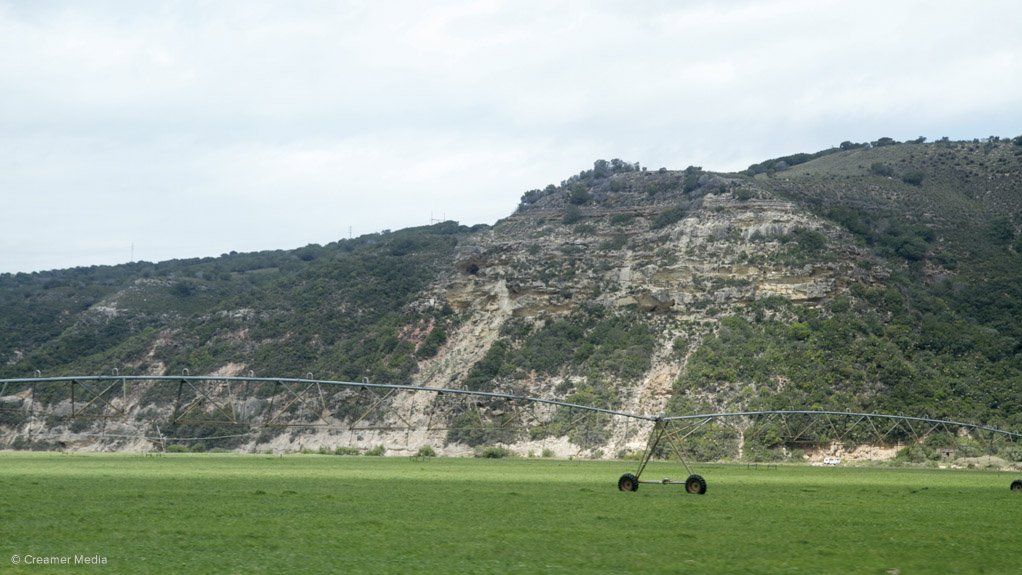Innovative interventions needed to turn around underperforming growth trajectory – Agbiz
Against the backdrop of a profoundly challenging macroeconomic environment where South Africa’s economy is expected to continue underperforming, averaging at 1.6% growth in the next three years, innovative interventions are needed to turn the current trajectory around, said the Agricultural Business Chamber of South Africa (Agbiz) chairperson Francois Strydom.
“Increased spending on grants and other social security measures may be needed in the short term, but a shrinking tax base cannot sustain this trend in the long run. As [Finance Minister Enoch Godongwana] noted, we need to grow the pie.”
The 2024/25 Budget presented a valuable opportunity to do so, but was largely silent on incentives for business, he said.
“The agricultural sector, while having performed broadly positively in the past few years, is confronted with various challenges, with energy security, logistics and declining municipal service delivery challenges front and centre,” said Agbiz CEO Theo Boshoff.
“While the sector is remarkably innovative and resilient, a fact that cannot be overlooked is that farming communities have to incur duplicate costs to provide basic service delivery, fix roads and water infrastructure, and improve safety and security for their communities. Additional costs erode the competitiveness of our rural industries,” he added.
Further, while the fiscal measures to support turnaround strategies for State-owned enterprises (SoEs) Eskom and Transnet are welcome, South Africa cannot put all of its eggs in the SoE basket.
“South Africa desperately needs to upscale the incentives provided to communities that meet their own energy, infrastructure, and service delivery needs,” Boshoff emphasised.
Extending the solar panel rebate to batteries and inverters, a value-added tax zero-rating for the inputs required to fix potholes, and excluding diesel used in all generators or graders used to maintain roads were examples that could help these communities recover some of the costs, he highlighted.
Further, Agbiz hoped the conditions placed on fiscal assistance to SoEs could contribute to efficiencies, but, until that time, tax incentives were required to maintain competitiveness where companies spent funds outside of their core areas of work, Boshoff said.
Additionally, Agbiz must acknowledge the pressure exerted by a looming election and all of the expectations that this brings, Strydom said.
“With this in mind, we are encouraged by the Minister’s and government’s commitment to addressing the structural constraints on the South African economy and navigating the ever more challenging macroeconomic environment.”
The specific focus on security was also welcomed, as this was another area that continued to worry agribusinesses and agricultural stakeholders in rural South Africa, he added.
EXCISE INCREASE
Meanwhile, the notable increase in exercise duties in the wine industry is worrying, as the industry is still recovering following years of financial pressure linked with Covid-19 lockdowns, Boshoff said.
“We had hoped the Minister would be more sensitive to the challenges of the industry and its sustainability,” he said.
Industry organisation South Africa Wine concurred, saying the excise hike of 7.17% on wine, 7.17% on sparkling wine and 6.67% on brandy, introduced by the National Treasury will inflict another blow to many wine businesses and further hamper the South African wine industry's economic recovery.
“In a time when growth and recovery are desperately needed, various crises, including the energy crunch, disruptions at the Port of Cape Town and increases in input costs, among others, are worsening the financial position the industry is currently in,” said South Africa Wine stakeholder engagement manager Christo Conradie.
“Despite extensive dialogue and submissions from South Africa Wine, the National Treasury
has not heeded our plea to keep excise inflationary. This ignores the vital role of the wine and brandy industry in the larger economy and its significant contributions to job creation across the value chain, particularly in rural communities, as well as the continued pressure for this industry to remain sustainable,” he said.
“South Africa Wine has been in discussions with Treasury over the past few months, where we emphasised the serious position of our industry and requested that inflationary excise taxes be introduced.
“This, together with other interventions as agreed upon in the Agriculture and Agro-Processing Master Plan, can enable the wine and brandy industry to fulfil its important role in the country's economy and our society.”
Excise rates have more than doubled since 2010, while South Africa’s recorded per capita alcohol consumption has remained relatively static, according to the World Health Organisation. The big concern, however, is that the illicit share of that market has almost doubled in less than a decade, Conradie said.
Article Enquiry
Email Article
Save Article
Feedback
To advertise email advertising@creamermedia.co.za or click here
Announcements
What's On
Subscribe to improve your user experience...
Option 1 (equivalent of R125 a month):
Receive a weekly copy of Creamer Media's Engineering News & Mining Weekly magazine
(print copy for those in South Africa and e-magazine for those outside of South Africa)
Receive daily email newsletters
Access to full search results
Access archive of magazine back copies
Access to Projects in Progress
Access to ONE Research Report of your choice in PDF format
Option 2 (equivalent of R375 a month):
All benefits from Option 1
PLUS
Access to Creamer Media's Research Channel Africa for ALL Research Reports, in PDF format, on various industrial and mining sectors
including Electricity; Water; Energy Transition; Hydrogen; Roads, Rail and Ports; Coal; Gold; Platinum; Battery Metals; etc.
Already a subscriber?
Forgotten your password?
Receive weekly copy of Creamer Media's Engineering News & Mining Weekly magazine (print copy for those in South Africa and e-magazine for those outside of South Africa)
➕
Recieve daily email newsletters
➕
Access to full search results
➕
Access archive of magazine back copies
➕
Access to Projects in Progress
➕
Access to ONE Research Report of your choice in PDF format
RESEARCH CHANNEL AFRICA
R4500 (equivalent of R375 a month)
SUBSCRIBEAll benefits from Option 1
➕
Access to Creamer Media's Research Channel Africa for ALL Research Reports on various industrial and mining sectors, in PDF format, including on:
Electricity
➕
Water
➕
Energy Transition
➕
Hydrogen
➕
Roads, Rail and Ports
➕
Coal
➕
Gold
➕
Platinum
➕
Battery Metals
➕
etc.
Receive all benefits from Option 1 or Option 2 delivered to numerous people at your company
➕
Multiple User names and Passwords for simultaneous log-ins
➕
Intranet integration access to all in your organisation





















